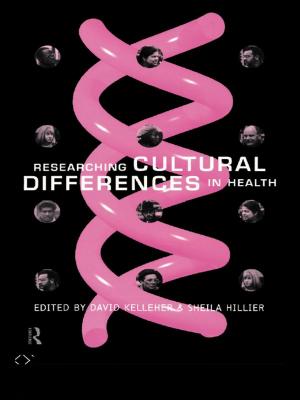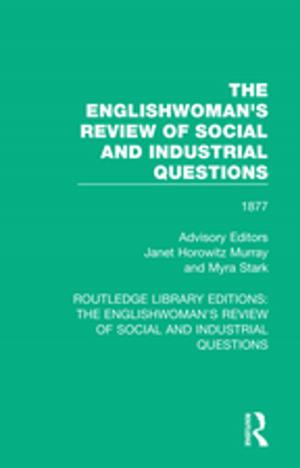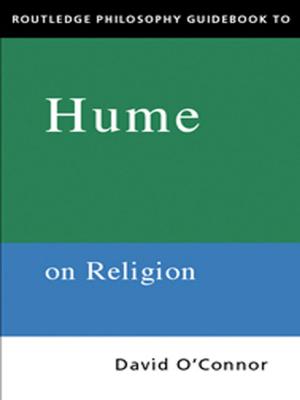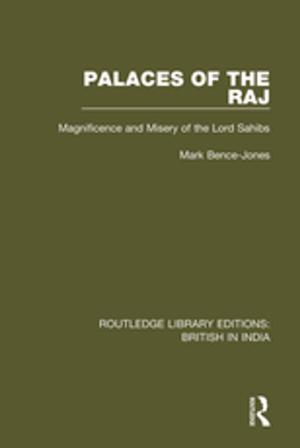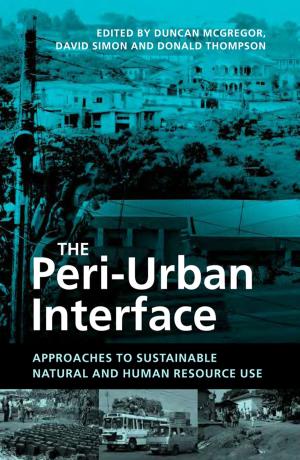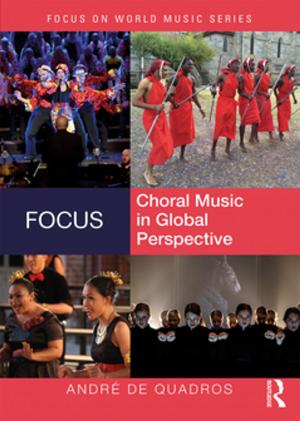Modernism and the Avant-garde Body in Spain and Italy
Fiction & Literature, Literary Theory & Criticism, European, Spanish & Portuguese, Italian| Author: | ISBN: | 9781317434061 | |
| Publisher: | Taylor and Francis | Publication: | March 22, 2016 |
| Imprint: | Routledge | Language: | English |
| Author: | |
| ISBN: | 9781317434061 |
| Publisher: | Taylor and Francis |
| Publication: | March 22, 2016 |
| Imprint: | Routledge |
| Language: | English |
This interdisciplinary volume interrogates bodily thinking in avant-garde texts from Spain and Italy during the early twentieth century and their relevance to larger modernist preoccupations with corporeality. It examines the innovative ways Spanish and Italian avant-gardists explored the body as a locus for various aesthetic and sociopolitical considerations and practices. In reimagining the nexus points where the embodied self and world intersect, the texts surveyed in this book not only shed light on issues such as authority, desire, fetishism, gender, patriarchy, politics, religion, sexuality, subjectivity, violence, and war during a period of unprecedented change, but also explore the complexities of aesthetic and epistemic rupture (and continuity) within Spanish and Italian modernisms. Building on contemporary scholarship in Modernist Studies and avant-garde criticism, this volume brings to light numerous cross-cultural touch points between Spain and Italy, and challenges the center/periphery frameworks of European cultural modernism. In linking disciplines, genres, —isms, and geographical spheres, the book provides new lenses through which to explore the narratives of modernist corporeality. Each contribution centers around the question of the body as it was actively being debated through the medium of poetic, literary, and artistic exchange, exploring the body in its materiality and form, in its sociopolitical representation, relation to Self, cultural formation, spatiality, desires, objectification, commercialization, and aesthetic functions. This comparative approach to Spanish and Italian avant-gardism offers readers an expanded view of the intersections of body and text, broadening the conversation in the larger fields of cultural modernism, European Avant-garde Studies, and Comparative Literature.
This interdisciplinary volume interrogates bodily thinking in avant-garde texts from Spain and Italy during the early twentieth century and their relevance to larger modernist preoccupations with corporeality. It examines the innovative ways Spanish and Italian avant-gardists explored the body as a locus for various aesthetic and sociopolitical considerations and practices. In reimagining the nexus points where the embodied self and world intersect, the texts surveyed in this book not only shed light on issues such as authority, desire, fetishism, gender, patriarchy, politics, religion, sexuality, subjectivity, violence, and war during a period of unprecedented change, but also explore the complexities of aesthetic and epistemic rupture (and continuity) within Spanish and Italian modernisms. Building on contemporary scholarship in Modernist Studies and avant-garde criticism, this volume brings to light numerous cross-cultural touch points between Spain and Italy, and challenges the center/periphery frameworks of European cultural modernism. In linking disciplines, genres, —isms, and geographical spheres, the book provides new lenses through which to explore the narratives of modernist corporeality. Each contribution centers around the question of the body as it was actively being debated through the medium of poetic, literary, and artistic exchange, exploring the body in its materiality and form, in its sociopolitical representation, relation to Self, cultural formation, spatiality, desires, objectification, commercialization, and aesthetic functions. This comparative approach to Spanish and Italian avant-gardism offers readers an expanded view of the intersections of body and text, broadening the conversation in the larger fields of cultural modernism, European Avant-garde Studies, and Comparative Literature.

